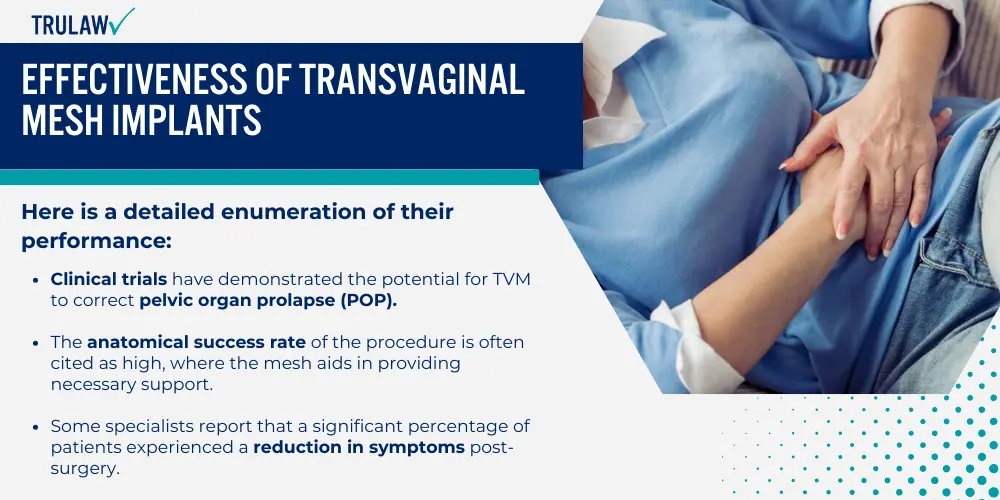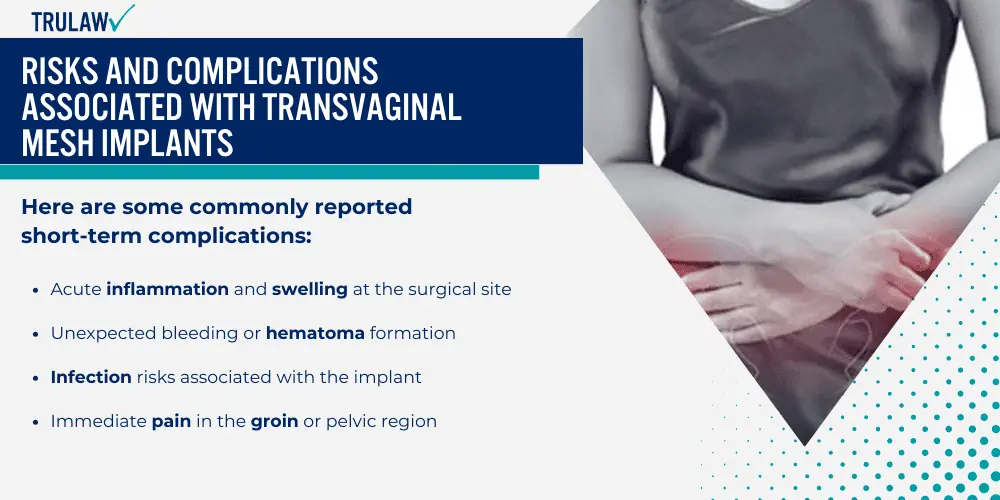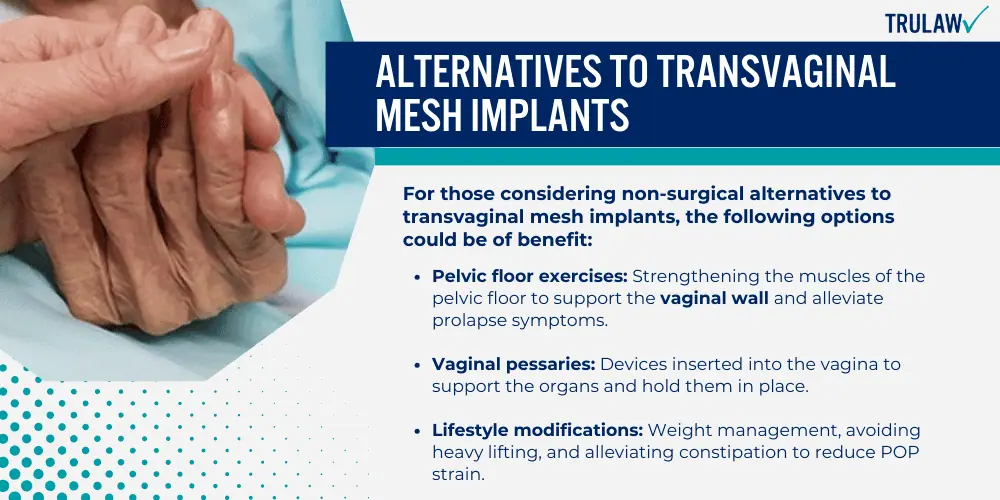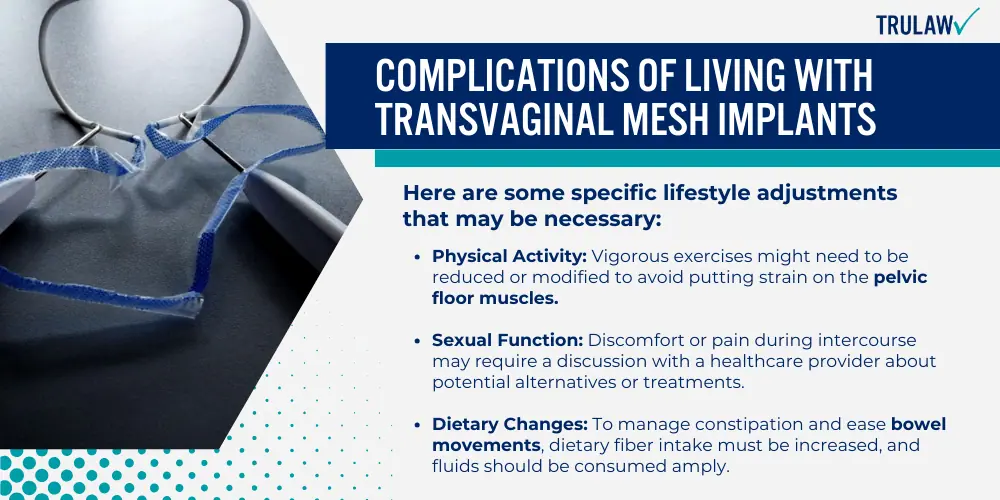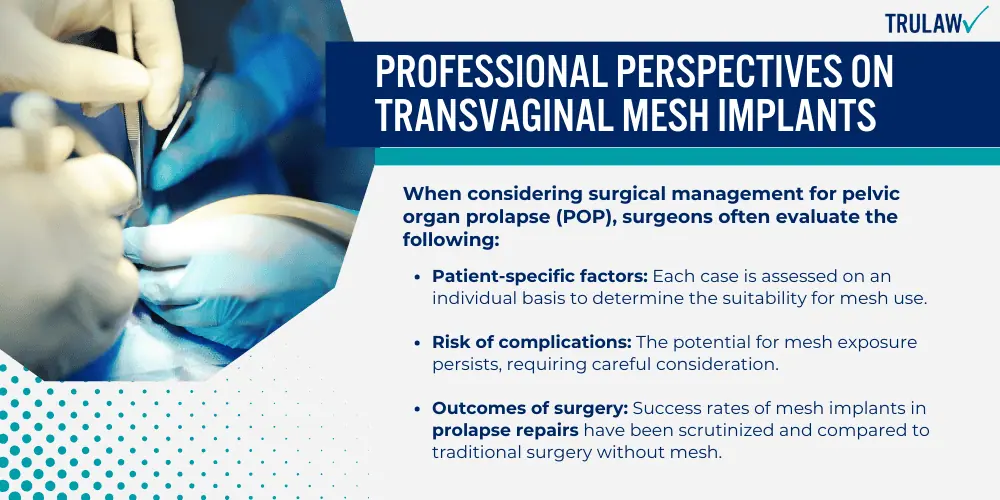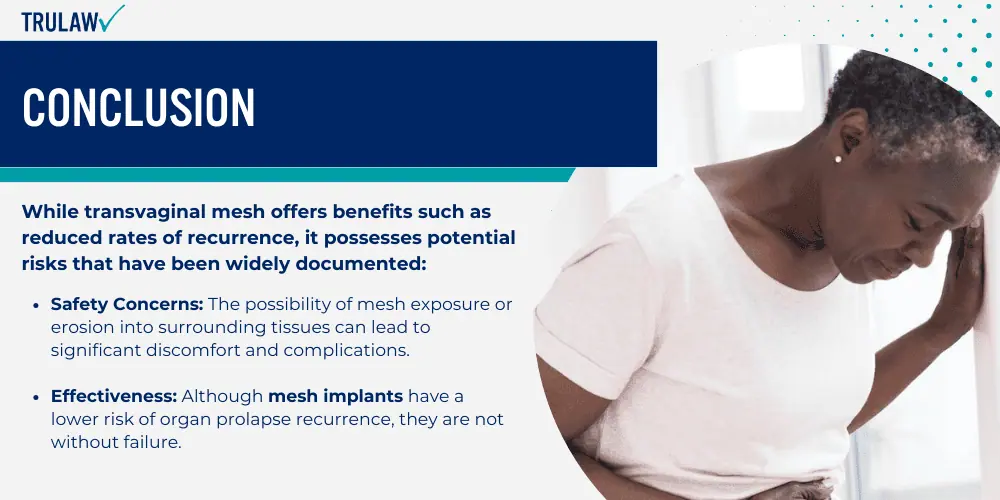Transvaginal mesh implants are medical devices designed to manage specific pelvic floor disorders that affect many women.
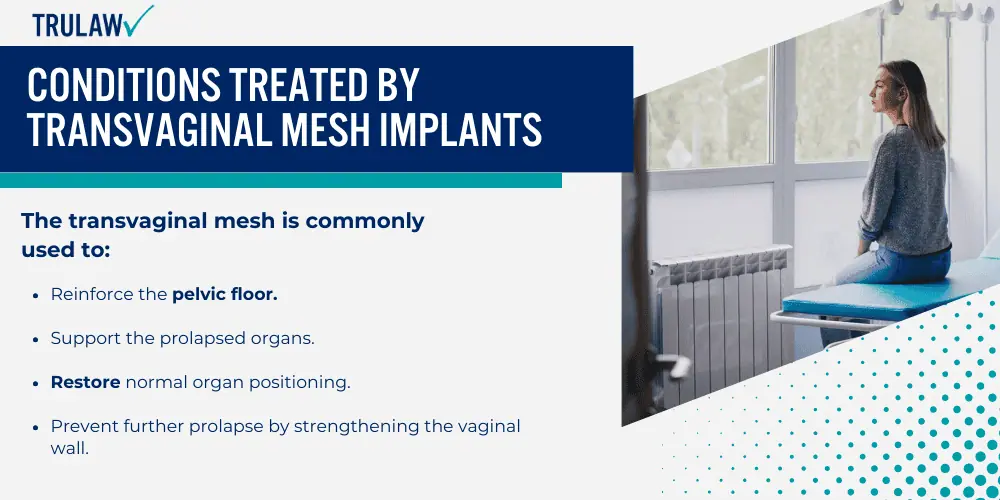
These implants provide support to weakened or damaged pelvic tissue.
Pelvic Organ Prolapse (POP)
Pelvic organ prolapse (POP) occurs when pelvic organs, such as the bladder, uterus, or rectum, descend into the vaginal canal due to weakened pelvic muscles.
The transvaginal mesh is commonly used to:
- Reinforce the pelvic floor.
- Support the prolapsed organs.
- Restore normal organ positioning.
- Prevent further prolapse by strengthening the vaginal wall.
Stress Urinary Incontinence (SUI)
Stress urinary incontinence (SUI) is another condition treated with transvaginal mesh, where involuntary urine leakage occurs during physical activities.
To treat stress urinary incontinence, surgeons may:
- Insert a mesh sling to support the urethra or bladder neck.
- Stabilize the urethra to prevent leakage.
- Reinforce the tissues to improve urethral closure.
- Enhance urinary control during activities that increase abdominal pressure.
In both POP and SUI treatment, the goal of a transvaginal mesh implant is to provide lasting support to the affected pelvic organs and improve the patient’s quality of life.


